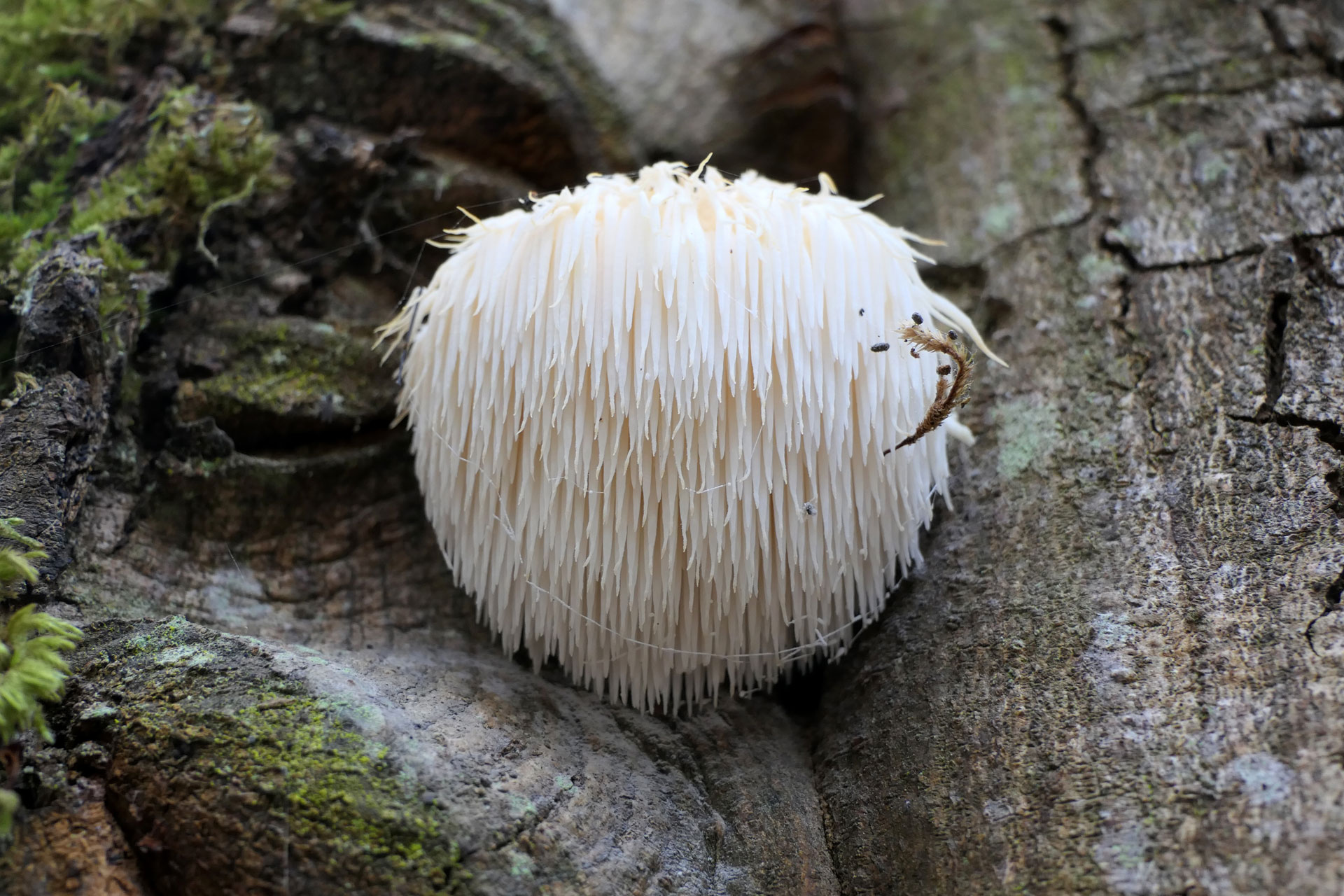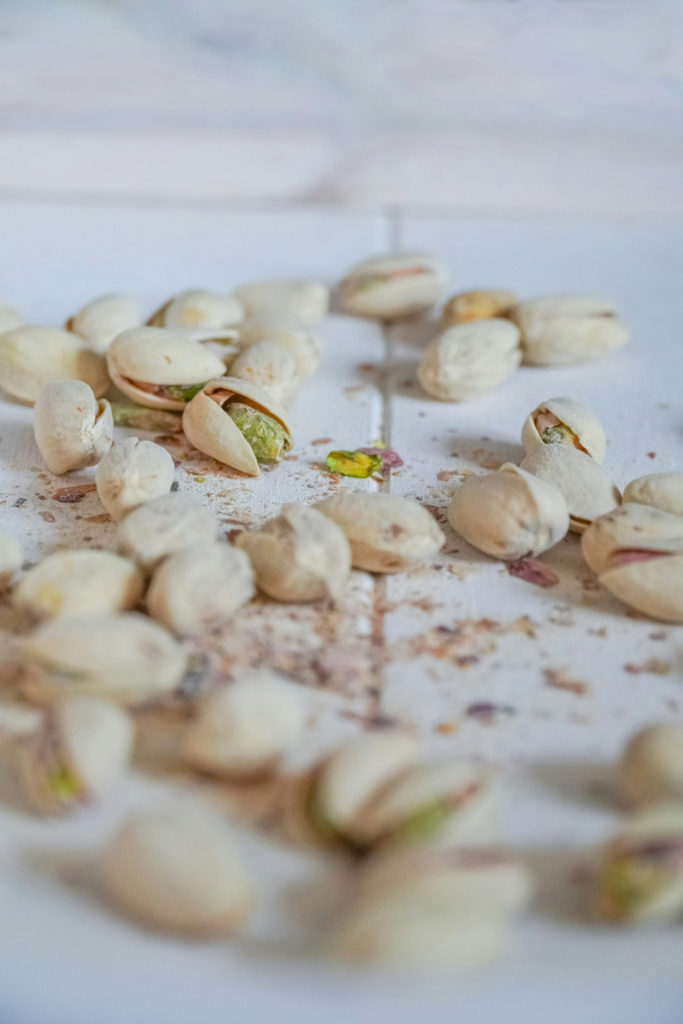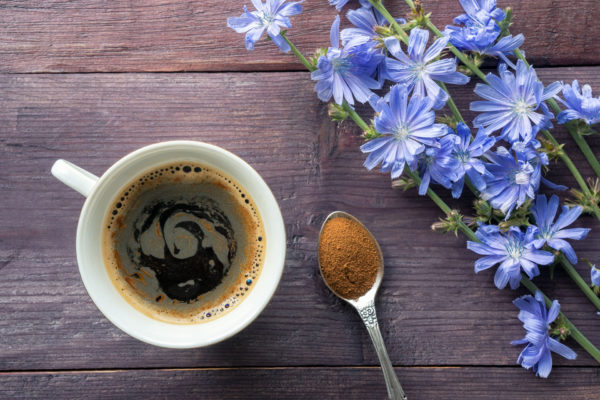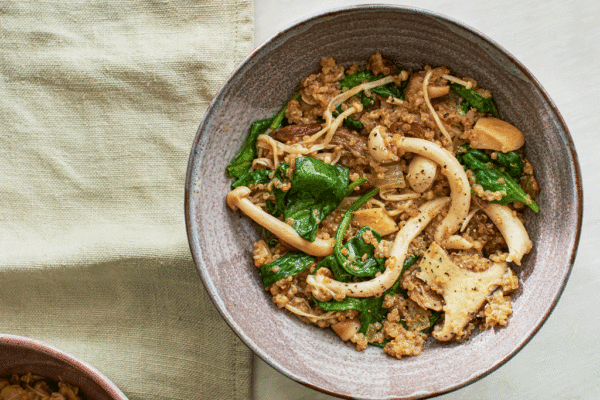
Will Drinking Mushroom Coffee Actually Do Anything?
By
7 months ago
The latest fungi trend, explained
Hailed for their wellbeing benefits, mushrooms have been in vogue for some time now – but nowadays the health brigade are most interested in the functional type. The latest trend sees these medicinal shrooms blended into coffee, which is being touted as the new wonder drink, said to offer perks ranging from increased energy to lower stress levels. Mushroom coffee is a booming industry right now, and continuing to soar in popularity – with the global market expected to grow by $2.36 billion by 2027. But is this drink all it’s cracked up to be?
Everything You Need To Know About Mushroom Coffee
What Is Mushroom Coffee?
Mushroom coffee is made by blending coffee beans with medicinal mushrooms. That means varieties like cordyceps, lion’s mane and turkey tail, as opposed to the kind you’d buy in the supermarket, such as portobello and oyster. Despite the mushroom content, the drink usually tastes similar to your average cup of coffee, with earthy, nutty flavour profiles.
What Are The Health Benefits?
Devotees view mushroom coffee as a healthier alternative to your regular flat white. It contains around half the caffeine content of a regular cup, making it a good choice for those who feel anxious or jittery from traditional coffee. You’ll also still be getting the good stuff from the coffee, which has been found to enhance memory function and mood, plus offer gut health benefits.
The alleged benefits don’t stop there. Adaptogenic mushrooms are associated with a whole host of perks for the body and mind, including stress reduction, improved brain function and more energy. Each variety is associated with different functions: reishi mushrooms are believed to offer immune support, for instance, while the chaga variety is hailed as a source of antioxidants.

Getty Images
There has been a particularly big buzz about lion’s mane lately, and its cognitive benefits. ‘Lion’s mane is packed with compounds that support brain health and mental clarity,’ Rhysa Phommachanh, healthcare expert at Landys Chemist, told us. It has also been linked to stress reduction – supported by a 2023 study published in Nutrients, which found lion’s mane supplements had a positive effect on cognitive function, stress levels and mood in young adults.
Research surrounding mushroom coffee specifically is limited at the moment. However, a recent review published in the journal Molecules concluded that the medicinal mushrooms usually found in coffee blends may have immune-boosting properties and help with metabolism.
However, some experts aren’t convinced by the mushroom coffee trend. A recent investigation from Which? put functional mushrooms in the ‘health products you don’t need’ category. Its report stated: ‘There isn’t enough evidence yet to suggest they work and the vast majority don’t have authorised health claims in the UK.’ Researchers added that often the goodness of mushroom coffee comes from the other added ingredients, such as omega-3, and vitamins B12 and D.
Ultimately, although anecdotally many people swear by it, the research surrounding mushroom coffee remains limited, and more in-depth, human clinical trials are needed to support the claims. Professor Nicholas Money, a mycologist at Miami University in Ohio – who published a review on medicinal mushrooms in 2016 – summed it up well in an interview with the Guardian. ‘Mushrooms probably do contain some really, really useful compounds but I want to see the science,’ he said. ‘Show me the evidence – that’s my bottom line with all of these products. On the plus side, probably, these products are not harming any consumers… the placebo effect is so powerful if somebody feels better after drinking mushroom coffee, go for it.’
It’s worth noting, though, that some medicinal mushrooms can interfere with certain medications, so if you are taking anything it’s worth speaking to your GP before diving in.






